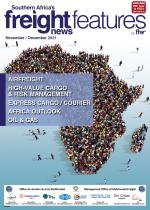In the absence of certainty and predictability, thanks to the ongoing global pandemic, supply chains have had to become f lexible, scalable and responsive.According to the Greendoor Group’s Sandra De Kock, there has also been a move towards exploring alternative routes and corridors.“We have put our Zambian f leet on the Beira Corridor, but it can be switched to the South African corridor at any time and when volumes warrant it. This kind of f lexibility is important,” she said. “There has also been a definite move towards looking at alternative corridors, particularly to South Africa, for both imports and expor ts.”This made it imperative that logistics companies were strategically placed not only in the southern African region, but the continent as a whole, said De Kock.Asked about challenges, she said border delays remained a major concern, impacting significantly on turnaround times and cost.“Various reasons exist for the delays – be it Covid-19 related, congestion or inefficiencies. Our turnaround times are, however, a constant challenge. There are also delays at some ports with loading and offloading.”She said in most cases clients were reluctant to entertain standing times and transporters were increasingly finding themselves to be free storage with no compensation.“The rates we are seeing in the system at the moment are also not sustainable with the turnaround times experienced,” said De Kock. “If there is not a substantial drive to increase rates, fewer vehicles will be available to service these cross-border corridors in the near future.”De Kock said cost remained a contentious issue, and with upgrades happening at border posts like Beitbridge, there were concerns that this would lead to increased costs for transporters that would have to be passed on to clients, putting rates under even more pressure.

